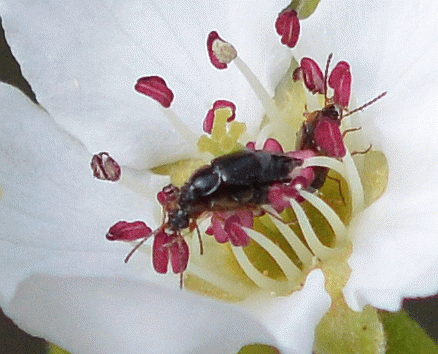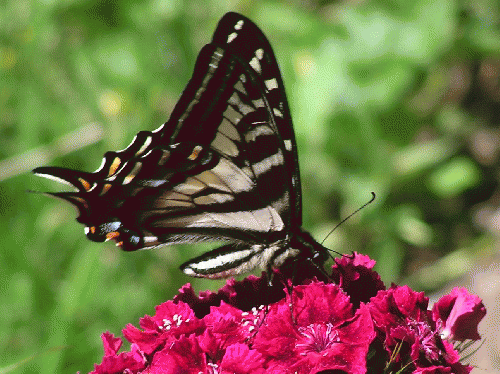Last fall, I ordered a big batch of bulbs, planning to improve pollinator habitat and assure that I had blooming flowers all spring, summer and fall. An hour or so after putting in an on-line order, I had a realization that I should check to see if the bulbs I had ordered would be pesticide free. I called the company and spoke to a very knowledgeable service rep. She said the bulbs came from Holland and she could not guarantee they were pesticide free. I mentioned that Holland had banned neonicotinoids a couple of years ago. She agreed, but said neonicotinoids were systemic and remained in the soil for many years. I told her I was using the flowers to attract pollinators and she willingly canceled my order.
I then called another very large bulb supplier. Their sales rep did not understand my concerns and left to speak to a supervisor. When she returned, she assured me that "Our bulbs are treated for pest resistance," so I knew not to order them. After that, I Googled "organic bulbs" and successfully ordered bulbs from Peaceful Valley Farm and Garden Supply (www.groworganic.com).
An article "The Perfect Crime, What's Killing all the Bees" [5] offers an insightful quote:
"Many of the plants available for sale at Home Depot, Lowes, or other garden supply stores have been treated with neonicotinoids. Lawn fertilizers also frequently contain weed-killing substances that persist in the soil for years. While bees don't bother with grass, if a homeowner decides to build a garden or plant bee-friendly clover in tainted soil, the bees will be exposed.
"Homeowners are planting flowers in their yards thinking they're helping bees and they're basically planting poison plants," says Erin MacGregor-Forbes, an urban beekeeper in Maine.""
Even this quote from someone interested in protecting bees falls into the honey bee trap. If the subject, "Bees" includes bumble bees, digger bees, miner bees, and the many other ground nesting bees, excluding negative effects on grass and soil becomes a nonsensical minimization of the issue since pesticides in the ground are a huge problem for them. When one includes the other pollinators besides bees this becomes even more of an understatement.
For confirmation, I stopped in both Home Depot and Lowes. The Home Depot manager reported they got their plants from outside suppliers and did not know the treatment history of their plants, however tended to think pesticides were not used unless needed and that plants were not treated by Home Depot. That answer left me with major doubts. The Lowes plant manager was more forthcoming with an answer of "I do not know for sure, but they were probably treated."
I called several of the local plant nurseries in Skagit and Whatcom Counties and received what I thought were surprising results.
First, most do not know if the plants they supply come from seeds that have been treated with neonics (neonicotinoids). Added to that, several of the people I spoke with said that
Next Page 1 | 2 | 3 | 4 | 5 | 6
(Note: You can view every article as one long page if you sign up as an Advocate Member, or higher).









